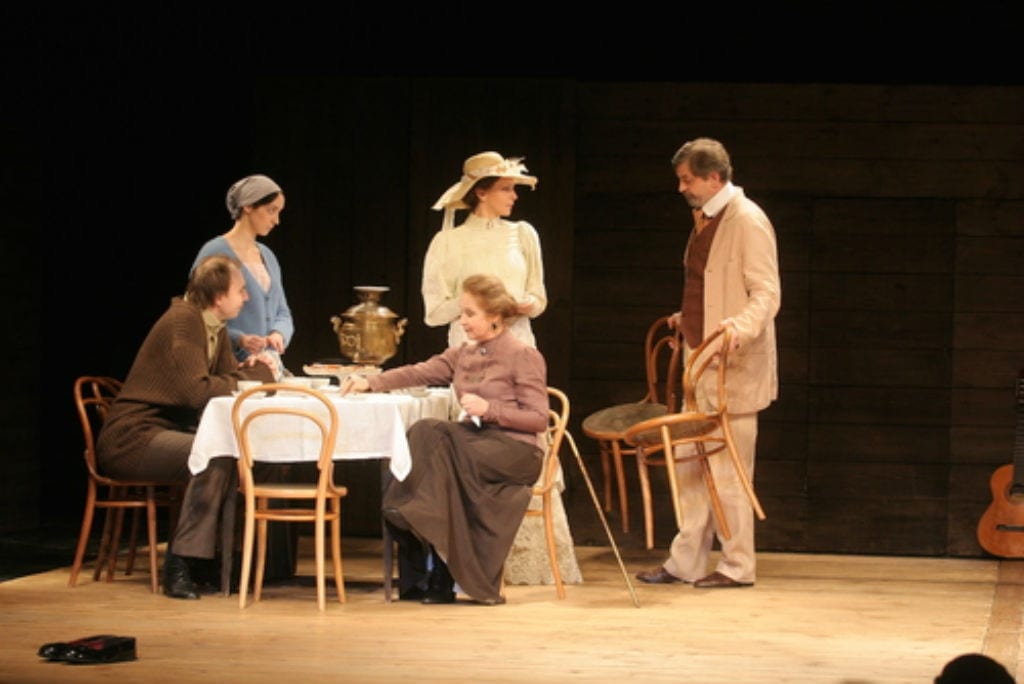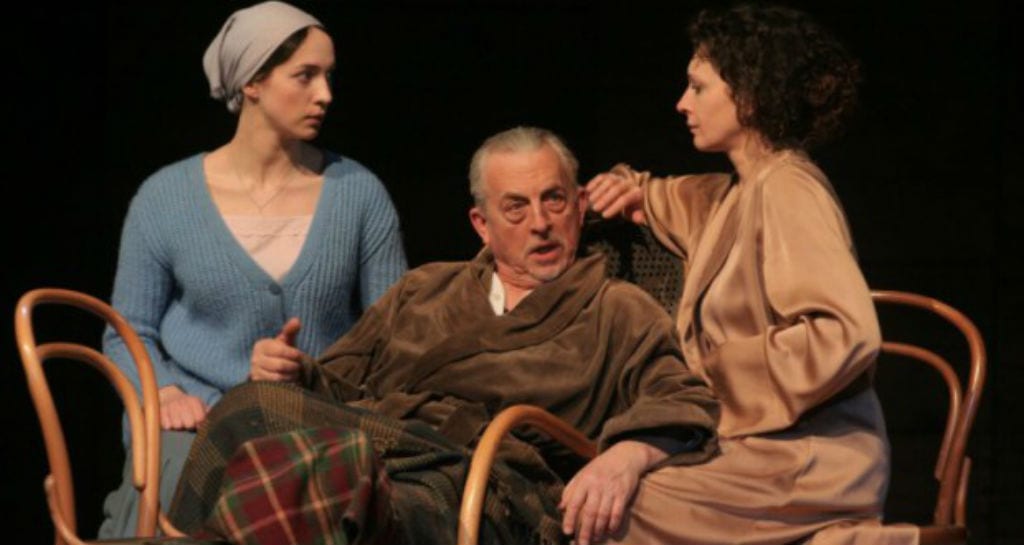Uncle Vanya follows the life of a family in rural Russia and shows how its members are disconnected from each other. A great void has been left by the death of Vanya’s sister before the play begins; her dowry, income from the estate the family lives on, is paid to the Professor who was married to her. However, the professor (Igor Ivanov) is woefully selfish and unaware of the labours Vanya (Sergei Kuryshev) and Sonia (Ekaterina Tarasova) go through to support his comfortable lifestyle; the professor’s wife (Ksenia Rappoport) is a charming yet lazy woman who manages to attract the attentions of most men who come into contact with her. As the play progresses, we realise that many of the family members only confide their unhappiness reluctantly, often hiding it so they can carry on toiling to support the estate.
Doctor Aastrov (Igor Chernevich) is a friend of the family and comes to visit at the request of the professor, who experiences intermittent pain in his leg. Chernevich plays the doctor as a charismatic yet somewhat jaded professional; a person who has seen much of illness and death in the surrounding peasant villages. The doctor is accompanied by Marina (Vera Bikova), who is the tending matronly figure of the play, guardian of the samovar, bandaging up the aching hearts of people in the house with tea, food and love. Marina, affectionately known as ‘Nanny’, is more of a caring presence than the real matriarch Mariya (Natalia Akimova) who is blinded by her adoration for the professor, relatively uninvolved in affairs of the house.
There is a palpable difference in the characterisation of Elena and Sonia. One is indolent and relies on her beauty. Rappoport plays Elena as this enchantress, an unsuspecting ‘tigress’ who can tempt men without trying; her mere being is enough to magnetise men. Sonia, on the other hand, is meek and compassionate, never one to indulge in hedonism; she is played as a dutiful and honest lady by Tarasova. Although Sonia is on the marriage market nobody is interested, but Elena – married – is clawed at by lusty bachelors. Dodin makes use of stage directions here and constantly places Vanya and the doctor in aggressively close stances to Elena, making her seem boxed in and assaulted by the empty infatuations of these men.

The play is spoken in Russian and the translation offered by The Barbican works well at evoking the natural cadences of conversational Russian. The difference between this translation and Peter Carson’s, for example, is that this one is less pompous and wooden. This is not to discredit the literariness of Carson’s, but for Dodin’s production this translation feels apt at accessing the casual and inane chatter of the drawing room.
Drinking, smoking and medicine-taking are all present here. All attempts are made to desensitise the self to the gloomy human condition. The doctor worries about the declining state of the environment, Vanya about his wasted youth, Sonia about her fate on the farm, Elena about her marriage and the professor about his old age. Where is the release? There is a massive argument between Vanya and the professor but no suggestion that the current system of sending him earnings will change; Vanya and Sonia are doomed to bureaucratic tedium as Sonia delivers a rousing speech about looking forward to rest. At the end of the production bales of hay are mechanically lowered onto the stage, presumably showing how trapped the characters are by the routine of farm work.

